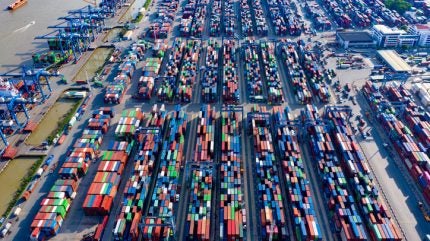
Vietnam is cutting taxes on US imports and approving Starlink services ahead of US President Donald Trump’s announcement of reciprocal tariffs this Wednesday (2 April).
Via a statement on its website, the government announced a reduction in its import tax on ethanol from 10% to 5%, on liquified natural gas from 5% to 2%, and on some types of cars from 64% to 32%. Many agricultural products like chicken, nuts, apples, cherries and raisins will also receive tax deductions. The changes went into effect on Monday 31 March.
Vietnam is one of the countries set to suffer the most from the upcoming US reciprocal tariffs because of its considerable reliance on trade. Last year, exports were equivalent to 85% of its gross domestic product, with the US representing its largest market.
US Trade Representative Jamieson Greer recently said to Vietnam’s top trade official that the country needed to improve the trade balance with the US. Trump has also called Vietnam “worse than China” and “almost the single worst abuser of anybody” when it comes to what the US administration sees as an unfair trade balance.
A few days before announcing the tax cuts, the government also allowed Elon Musk’s company SpaceX to launch its Starlink satellite internet service on a trial basis until the end of 2030. There will be no limit on foreign ownership of the service. The decision followed negotiations between SpaceX and Vietnam’s Government, which previously did not allow foreign ownership in the sector.
Vietnamese Prime Minister Pham Minh Chinh has also said he would be willing to visit Mar-a-Lago, Trump’s home base in Florida, and “golf all day long” if it will help Vietnam. While the remark was said as a joke, it reflects Vietnam’s ‘bamboo diplomacy’ approach, which centres on a flexible approach to foreign policy.

US Tariffs are shifting - will you react or anticipate?
Don’t let policy changes catch you off guard. Stay proactive with real-time data and expert analysis.
By GlobalDataOn 2 April, Trump will announce reciprocal tariffs on most of the US’ trade partners, a plan that raises tariffs on foreign goods to match what other countries impose on US exports. The president has referred to it as ‘Liberation Day’. Global stock markets have fallen this week as countries anticipate one of the biggest hits to the global trading system in recent memory.



